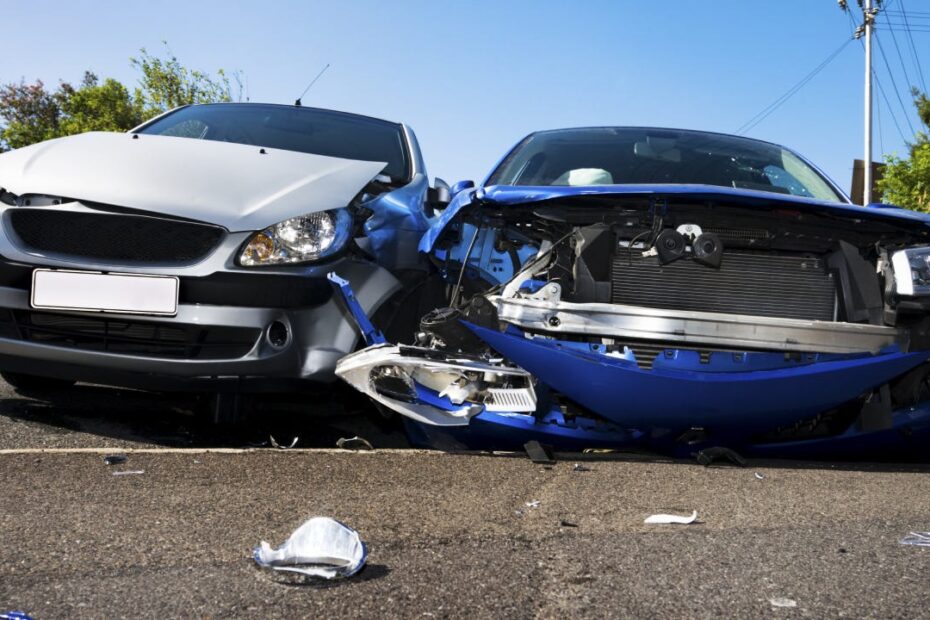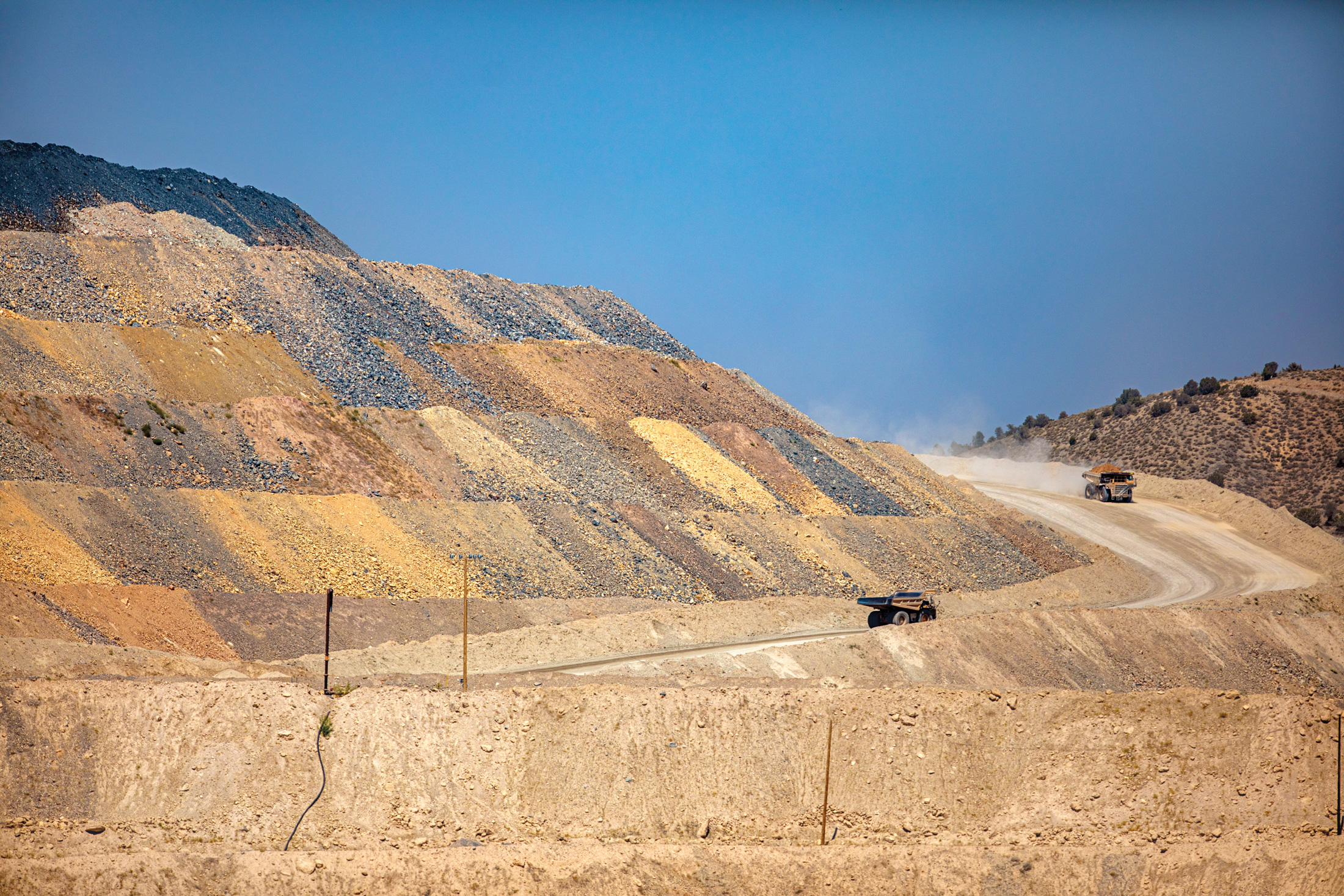In the event of crashing a financed car with insurance, you are still responsible for the remaining loan amount despite having insurance coverage. This means you might be making payments while the car is being repaired or, in more severe cases, paying off the car loan while considering replacement options if the insurer deems the car a total loss.
:max_bytes(150000):strip_icc()/car-repair-following-insurance-claim-accident-527113_color-e5cd60eaed274db5b5e65c860183cd64.png)
Credit: www.thebalancemoney.com
Consequences Of Crashing A Financed Car With Insurance
In the unfortunate event of crashing a financed car with insurance, you may still be responsible for making loan payments while the car is being repaired or even if it’s considered a total loss. The insurance company will typically only pay the actual cash value of the car, leaving you liable for any remaining loan balance.
Insurance Coverage And Loan Payoff
When you crash a financed car with insurance, there are several consequences to consider. One of the main issues is insurance coverage and the loan payoff. It’s important to understand that while you may have insurance, it may not fully cover the remaining balance of your loan.
Typically, when your car is financed, the lender requires you to carry comprehensive and collision insurance. This insurance is designed to cover damages to your vehicle in the event of an accident. However, the insurance company is only required to pay the actual cash value (ACV) of the car, which may differ from the amount you owe on your loan.
This means that if your car is totaled in an accident, the insurance company will pay you the ACV, which could be less than the remaining loan balance. In this situation, you are still responsible for making up the difference between the ACV and the loan payoff. This can leave you with a financial burden, especially if you were already upside down on your loan.
The Role Of The Insurance Company
When you crash a financed car with insurance, the role of the insurance company becomes crucial. It is their responsibility to assess the damages, determine the value of the car, and process your claim.
If the car is deemed a total loss, the insurance company will typically pay you the ACV of the vehicle. They will then use this payout to partially or fully pay off the outstanding finance on the car. The remaining amount, if any, will still be your responsibility to settle.
It’s important to note that insurance companies have their own methods for valuing a totaled car. They may consider factors such as the make, model, age, mileage, and condition of the vehicle. However, if you believe that the write-off value assigned by the insurance company is inaccurate or unfair, you have the right to dispute it.
Disputing The Write-off Value
Disputing the write-off value of your financed car can be a complex and time-consuming process. However, if you feel that the insurance company has undervalued your vehicle, it is worth pursuing.
To dispute the write-off value, you can provide evidence such as recent maintenance records, receipts for recent repairs or upgrades, and documentation of similar vehicles for sale at a higher price. Presenting this information to the insurance company may help in negotiating a higher payout for your totaled car.
It’s important to gather all necessary documentation and present a strong case when disputing the write-off value. You can also consider involving a legal professional who specializes in insurance claims to assist you in the process.
In conclusion, crashing a financed car with insurance can have numerous consequences, including dealing with insurance coverage limitations and loan payoff discrepancies. Understanding the role of the insurance company and your rights in disputing the write-off value can help navigate this challenging situation.
What Happens When You Crash Your New Car
In the unfortunate event of crashing your financed car with insurance, your auto insurance company will pay you the current value of the car at the time of the accident. However, it is important to note that this amount is likely to be less than what you originally paid for the car.
Additionally, you will remain responsible for the remainder of the loan, even if the car is being repaired or deemed a total loss by the insurer.
Insurance Payout
When you crash your financed car with insurance, your auto insurance company will provide a payout based on the value of your car at the time of the accident. However, it is important to note that this payout may be less than what you initially paid for the car. Insurance companies determine the value of your car based on factors such as age, condition, mileage, and market trends.
Limitations Of Car Insurance
It is crucial to understand the limitations of car insurance when it comes to a crashed financed car. Insurance companies are not obligated to pay off your entire loan. They are only required to pay the actual cash value (ACV) of the car. If you owe more on your car loan than the ACV, you will be responsible for covering the remaining amount. This situation is commonly known as being “upside down” on your loan.
In the event of a total loss where your car is deemed irreparable or the cost of repairs exceeds the ACV, your insurance company will usually offer a settlement to pay off your loan. However, if the settlement is not enough to cover the loan, you will need to make up the difference out of pocket.
If your car is repairable, you may still be responsible for making loan payments while it is being repaired. Additionally, your insurance premium may increase after an accident, considering the increased risk you pose as an insured driver.
| Pros of Insurance Payout | Cons of Insurance Payout |
|---|---|
|
|
It is important to always read the terms and conditions of your insurance policy to understand the extent of coverage and any limitations. Additionally, consider discussing your specific situation with your insurance agent to ensure you have the most suitable coverage for your financed vehicle.
Remember, while insurance can provide financial support in the event of a crash, you may still be responsible for making loan payments. It is crucial to assess your financial situation and determine the best course of action to fulfill your loan obligations while considering repair or replacement options.
Financial Consequences Of Crashing Into An Expensive Car
When it comes to crashing into an expensive car, the financial consequences can be significant. Damaging a high-value vehicle can result in increased liability compared to a standard car accident. The owner of the expensive car stands to experience a higher financial loss due to the higher value of their vehicle. This can lead to seeking greater compensation from the responsible party.
Increased Liability
When you crash into an expensive car, the increased value of the vehicle can escalate your liability. The cost of repairs or replacement for an expensive car is often much higher than for a regular vehicle. As a result, the owner may hold you responsible for a larger amount of money to cover the damages.
Seeking Greater Compensation
In the event of crashing into an expensive car, the owner may seek greater compensation for their financial loss. They may argue that the damages have negatively impacted the value of their luxury car and demand a higher payment to cover the full extent of the loss.
In conclusion, crashing into an expensive car can have severe financial consequences. The increased liability and the potential for the owner to seek greater compensation can put you in a difficult financial situation. It is crucial to ensure that you have adequate insurance coverage to protect yourself from these potential risks.
:max_bytes(150000):strip_icc()/how-car-insurance-companies-value-cars.asp-final-e3fe7d12f1fc4cb9bef0d86ca31d28c4.jpg)
Credit: www.investopedia.com
Liability And Repayment In The Event Of A Total Loss
In the event of a total loss after crashing a financed car with insurance, you may still be liable for the remainder of the loan despite having insurance coverage. This means you could be making payments while the car is being repaired or considering replacement options if the insurer deems the car a total loss.
Remaining Liable For The Loan
Even if you have insurance coverage, crashing a financed car can leave you with the burden of remaining liable for the loan. This means that despite the accident, you may still be responsible for making payments towards the loan while the car is being repaired or even paying off the loan entirely if the car is deemed a total loss.
Payment Responsibilities During Repairs
When you crash a financed car with insurance, your payment responsibilities can vary depending on the extent of the damage. In some cases, insurance may cover the repair costs, but you may still need to contribute a deductible. However, if the repairs are significant and the insurance company declares the car as a total loss, you may be responsible for continuing to make loan payments even without the use of the vehicle.
This situation can lead to a financial strain as you will have to handle both repair expenses and loan payments simultaneously. Furthermore, if you are unable to make those payments, it can negatively impact your credit score and even result in repossession of the vehicle.
Considering Replacement Options
When faced with a potential total loss, it’s important to consider your replacement options. Depending on the amount still owed on the loan, it may be more practical to use insurance funds to pay off the remaining balance and consider purchasing a new vehicle. This allows you to start fresh without having to worry about repairs, continued loan payments, or diminished value due to the accident.
On the other hand, if the remaining loan balance is low, you may choose to use insurance funds towards repairing the vehicle and continuing to make loan payments. This decision depends on the overall condition of the car, its value after repairs, and your financial situation.
Regardless of the option you choose, it’s important to carefully evaluate the financial implications and determine the most suitable course of action for your individual circumstances.
Responsibility For Damages And Repairs
When you crash a financed car with insurance, you may still be liable for the remainder of the loan despite having coverage. This means you could be making payments while the car is being repaired or considering replacement options if the insurer deems it a total loss.
Fault And Liability
If you crash a financed car and have insurance, determining fault and liability become critical factors in the aftermath. In most cases, insurance companies will look at the circumstances of the accident and assign fault based on their findings. It’s important to note that insurance coverage does not absolve you from financial responsibility for damages to a financed car. Despite having insurance, you remain liable for the remainder of the loan. This means you might be making payments while the car is being repaired or, in more severe cases, paying off the car loan while considering replacement options if the insurer deems the car a total loss.Coverage By Other Party’s Insurance
In the event that the accident was caused by another driver, their insurance coverage typically comes into play. If the other driver is found at fault, their insurance company may be responsible for covering the damages and repairs to your financed car. This can alleviate the financial burden on your part, as their insurance should compensate for the costs involved. However, it is essential to gather evidence and report the accident promptly to ensure a smooth claims process. Remember to document the accident scene, exchange information with the other party involved, and file a police report if necessary.Uninsured At-fault Accidents
Unfortunately, not all drivers on the road have insurance coverage. If you crash a financed car with an uninsured driver at fault, the situation becomes more complicated. In this case, you may have to rely on your own insurance policy to cover the damages and repairs to your vehicle. However, it’s important to review your policy’s uninsured motorist coverage and consult with your insurance provider to understand the extent of your coverage. Keep in mind that the terms and limitations of your policy will determine the compensation you receive. Ultimately, it’s crucial to familiarize yourself with your insurance policy and understand your financial responsibilities if you crash a financed car. Whether the accident is your fault or the fault of another driver, insurance coverage provides a safety net, but it may not absolve you of your financial obligations. Stay informed, follow proper steps in the event of an accident, and consult with your insurance provider for guidance throughout the claims process.:max_bytes(150000):strip_icc()/what-happens-when-you-buy-too-much-car.aspx-final-2d09842fa68a4ddba2baa0c5065fa4ab.png)
Credit: www.investopedia.com
Frequently Asked Questions On What Happens If You Crash A Financed Car With Insurance
Will My Insurance Pay Off My Car Loan?
Your insurance will not directly pay off your car loan. They will only pay the actual cash value (ACV) of your car. If the ACV is less than what you owe, you will be responsible for paying the difference. However, if someone else is at fault for the accident, their insurance may cover the damage to your vehicle.
What Happens When Insurance Writes Off A Financed Car?
When insurance writes off a financed car, any payout from the insurance company will be used to pay off the outstanding finance. You may need to go through your insurance company for repairs and can dispute the value of the write-off.
However, you remain liable for the remainder of the loan despite having insurance coverage.
What Happens If I Crash My New Car?
If you crash your new car, your auto insurance company will pay you the value of the car at the time of the accident, which may be less than what you paid for it. If you have a loan on the car, you will still be responsible for making the loan payments, even if the car is being repaired or deemed a total loss.
What Happens If You Crash Into An Expensive Car?
If you crash into an expensive car, you may be responsible for paying for the damages. Your insurance may cover some or all of the costs, depending on your policy. However, if the car is written off, you may still owe money on the loan for the car.
It’s important to check your insurance coverage and consult with your insurance company to understand your financial liabilities.
Conclusion
When you crash a financed car with insurance, you may still be liable for the remainder of the loan. This means you could be making payments while the car is being repaired or, in severe cases, paying off the loan while considering replacement options if the car is deemed a total loss by the insurer.
It’s important to understand the terms of your insurance policy and discuss any potential financial obligations with your lender.


